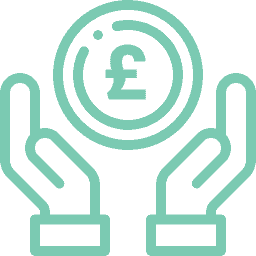Self Employed Mortgage Advice
Expert Mortgage Advisers
We work with dozens of lenders
Access to competitive rates
We will work with you to understand your situation and needs, then develop personalised advice to help you achieve your goals.
Get in touch
Home » Self Employed Mortgage Advice
Self-Employed Mortgages No Longer Exist
‘Self-Certification Mortgages‘ have been suspended by the FCA since 2011, because of improper usage. Therefore, specialist mortgage products are no longer available for Self-Employed people.
What Mortgage Products Are Available to the Self-Employed?
The acceptance criteria is stricter than for employed people as it requires a deeper insight into income calculations. For example, you’ll likely need to provide at least two years of accounts when applying for a mortgage. These need to be assessed and signed off by a certified accountant.
Has COVID-19 Affected Mortgage Availability for the Self-Employed?
Unfortunately, as a result of COVID-19 the lenders are holding their purse strings a bit tighter than usual. Some lenders are asking for your current business account statements, in order to see what impact COVID-19 has had on your profits.
Thankfully some lenders are reacting in a more positive way. Some will also consider self-employed businesses with just one year of accounts, for certain mortgages. It’s also reassuring to hear that many lenders are considering those who have used the government’s SEISS scheme, throughout the COVID-19 crisis.
Speak to An Expert
Expert Mortgage Advisers
We work with dozens of lenders
Access to competitive rates
We will work with you to understand your situation and needs, then develop personalised advice to help you achieve your goals.
How to Improve Your Chances of Acceptance by Lenders
The key to acceptance is to plan for your mortgage application in advance. Each of the following tips can help you prepare for a successful mortgage application.
Save a Healthy Deposit
Any mortgage applicant with a large deposit will have a higher chance of acceptance. Having a minimum deposit of 10% of the property price, but ideally 15%-20% will make you more attractive to lenders. This is particularly true if you have a short trading history.
Ensure your Credit Rating is Good
Those with a high credit rating immediately come across as less risky to lenders. Checking your credit report at least a year before your application is advisable.
For a strong credit score, ensure you appear on the electoral roll and try to pay off any debts you have. Ask creditors to remove incorrect entries and dormant accounts from your report. In the meantime, aim to stay within your budget for twelve months.
Use an Accountant
It’s a good idea to have three years of accounts and three annual tax calculations (SA302s) prepared in advance. If you usually file your own taxes, you may need to have them signed off by a certified accountant, to support your mortgage application.
Self-Certification Mortgages’ have been suspended by the FCA since 2011, because of improper usage. Therefore, specialist mortgage products are no longer available for Self-Employed people.
How can a Mortgage Broker Help?
Mortgage brokers have a perspective of the whole mortgage market. This allows them to assess your likelihood of acceptance, based on your individual circumstances. They can advise you about which mortgage lenders are more likely to accept your application.
A financial rejection, whether it’s for a mortgage, or any financial product, will affect your credit file. This lowers your credit score, making it less likely you’d be accepted, should you apply again.
Speak to An Expert
Expert Mortgage Advisers
We work with dozens of lenders
Access to competitive rates
We will work with you to understand your situation and needs, then develop personalised advice to help you achieve your goals.
How is your Application Assessed?
The lenders calculate your mortgage depending on the type of business you operate. Each lender also has a slightly different criteria for calculating the amount you can borrow.
It’s worth noting that if you are considering changing your business type, this can affect your application. It’s best to wait until your mortgage offer is final, before making any changes.
Sole Traders
For sole traders, the lender bases their mortgage calculation on your total net income. They will usually require your SA302 forms and your Tax Year Overviews, which shows your total income and tax paid for the relevant years.
Partnerships
If you are part of a partnership, the lender will base their mortgage calculation on your share of the net profits. It’s important to note; you need to own 25% or more of the partnership to be considered self employed.
Limited Companies
In the case of limited companies, usually only your personal accounts are used to calculate the mortgage. If you’re a director, your salary and dividends will be used. Profits that you do not draw from the business are rarely acknowledged in the calculations.
YOUR HOME MAY BE REPOSSESSED IF YOU DO NOT KEEP UP REPAYMENTS ON YOUR MORTGAGE
The Financial Conduct Authority does not regulate most Buy to Let Mortgages
We may charge a fee of up to £395 for mortgage advisory services and administration
Why Mint Mortgages & Protection

Access to 1000s of mortgage products

Save money, time and hassle

Expert knowledge at getting you the best deals





